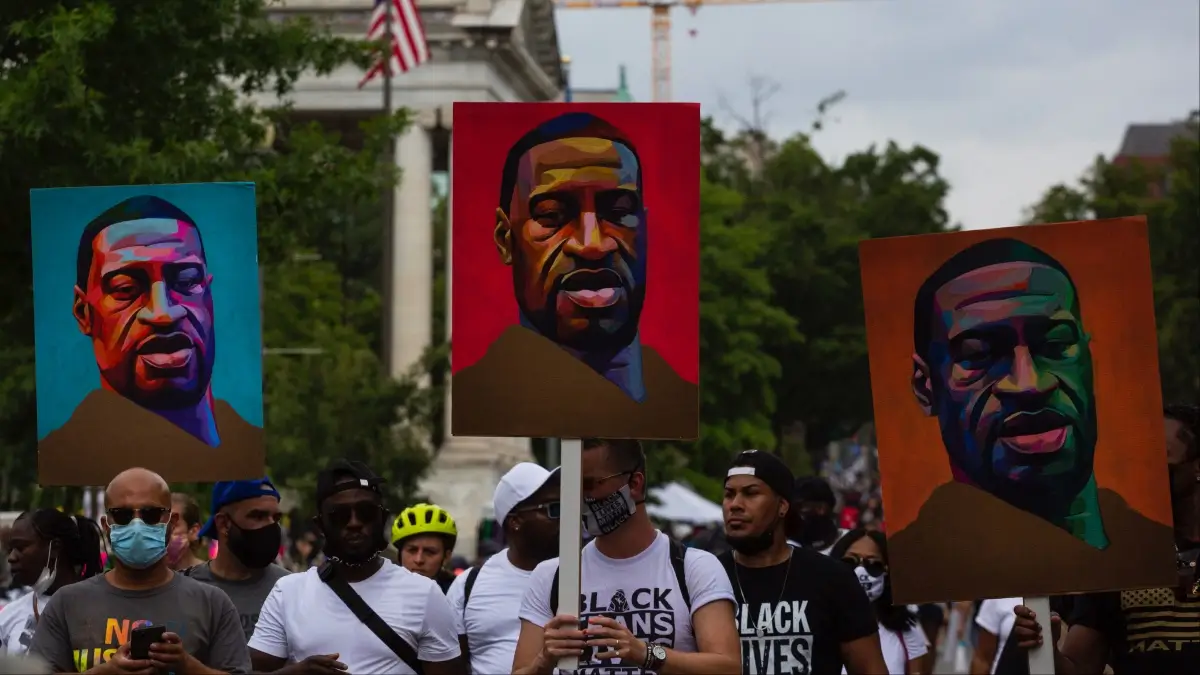From Louisiana, San Francisco, Oregon, and Washington, D.C., politicians are hoping a wave of new tough-on-crime proposals and laws will prevent crime, reversing criminal justice reforms that were implemented years ago.
Political leaders from both major political parties believe crime is rising, and the way to fix that is to get tough on crime. But “tough-on-crime” laws are more effective in boosting incarceration rates without evidence of effectiveness in deterring crime, experts say. It is a change of course from the momentum that followed the police killing of George Floyd, leading to criminal justice reforms.
After Floyd’s death, states passed hundreds of reform bills, including chokehold bans and other use-of-force guidelines, while several cities vowed to invest in community programs and crisis response teams to assist with behavioral-health-related calls.

Now, in certain states, politicians have led efforts to grant more power to police, increase criminal penalties, mandate drug treatment as a condition for welfare benefits, and repeal other laws that allow courts to prosecute younger individuals.
Louisiana Gov. Jeff Landry, for example, recently blamed a law signed by the former governor in 2017 for “rampant crime,” according to his March 1 opinion piece in the Shreveport Times. State lawmakers there passed legislation during a special session on crime, including a measure that now allows courts to prosecute 17-year-olds as young adults, the Plaquemine Post South reported.
The Republican governor approved efforts to increase the variety of execution methods for capital punishment and limit opportunities for parole and early release. Critics, such as the ACLU of Louisiana, testified against two of the bills, arguing “they were costly and not likely to reduce crime now,” USA Today wrote. Also, House Democratic Caucus Chairman Matthew Willard of New Orleans had similar arguments, saying they will not stop crime before it happens.
Shari Stone-Mediatore, co-founder of advocacy group Parole Illinois and a professor at Ohio Wesleyan University, told USA Today those strict laws attempt to combat crime by stigmatizing offenders rather than addressing underlying issues.
This approach leads to mass incarceration, disrupts families and communities, and disproportionately affects people of color, she said. “It’s not a productive way to deal with social problems” like drug addiction or unemployment, Stone-Mediatore said.
Meanwhile, lawmakers in San Francisco voted in favor of two propositions granting additional authority for police to pursue suspects in vehicles, expanding the use of drones and surveillance cameras, and mandating addiction treatment for welfare assistance recipients.
Those measures were pushed by Democratic Mayor London Breed, who is up for reelection in November. As reported by The Associated Press, her opponents argue that she hasn’t been able to get drug crimes, theft and vandalism under control.
Similarly, D.C. Council members approved a set of public safety measures, which include reinstating “drug-free zones” to target drug-related loitering, according to news reports.
In Oregon, similar issues emerged in its state Legislature as lawmakers gained traction on a bill to repeal a portion of Measure 110, a voter-approved measure from 2020 aimed at decriminalizing drug possession.
Opponents argue that reinstating criminal penalties would not only overwhelm the criminal justice system but unfairly impact Black and Latino residents in Oregon, as reported by the Statesman Journal.
Many of the recent tough-on-crime laws are essentially rolling back some of the most controversial reforms “rather than completely rejecting a balanced approach,” Adam Gelb, President and CEO of the nonpartisan think tank Council on Criminal Justice, told USA Today.
“It’s a stunning turnabout, especially so soon after the wave of national protests against the system for being too harsh,” he said. “I think there’s very little chance that we return fully to the notion that we can arrest and punish our way to safety.”
Overall, the United States remains the leader in the total number of people incarcerated across the globe, with more than 2 million prisoners nationwide, according to reports. That figure is equivalent to roughly 25 percent of the world’s total prison population.
A Republican in Tennessee is pushing a controversial bill that addresses local government regulations. While the bill may seem straightforward, it follows the Memphis City Council’s recent ordinance preventing law enforcement from initiating stops solely for minor infractions, News Channel 5 in Nashville reported. On Thursday, the Tennessee Senate passed the bill that would override the city ordinance that blocks pretextual traffic stops, as reported by FOX 13.
The move was prompted by the tragic death of Tyre Nichols while in Memphis Police custody after a routine traffic stop.
Nichols’ family, present at the capitol on Monday, vehemently opposed the bill. “I’m not going to pretend to be an expert in politics,” said RowVaughn Wells, Nichols’ mother. “We can’t comprehend how a local ordinance, supported by the community, can be challenged and undermined in this way.”


